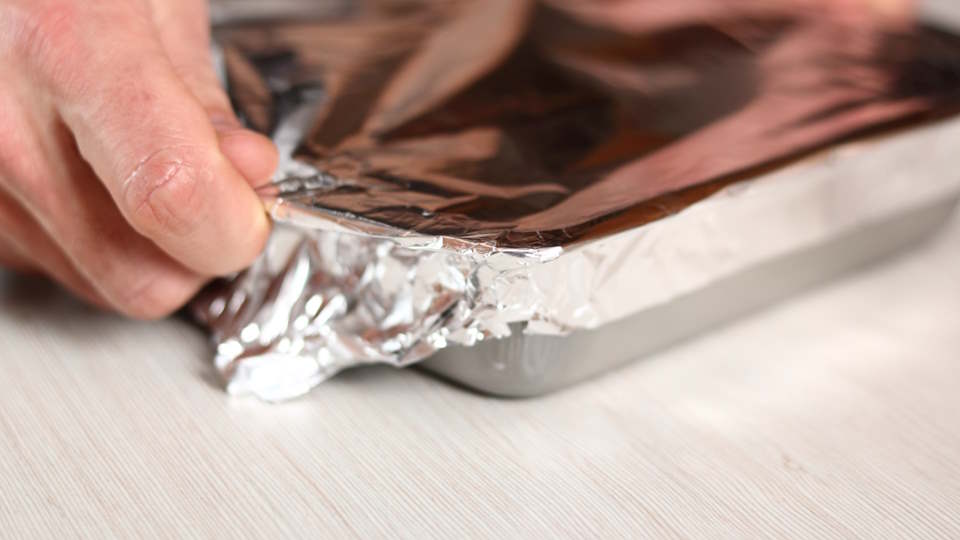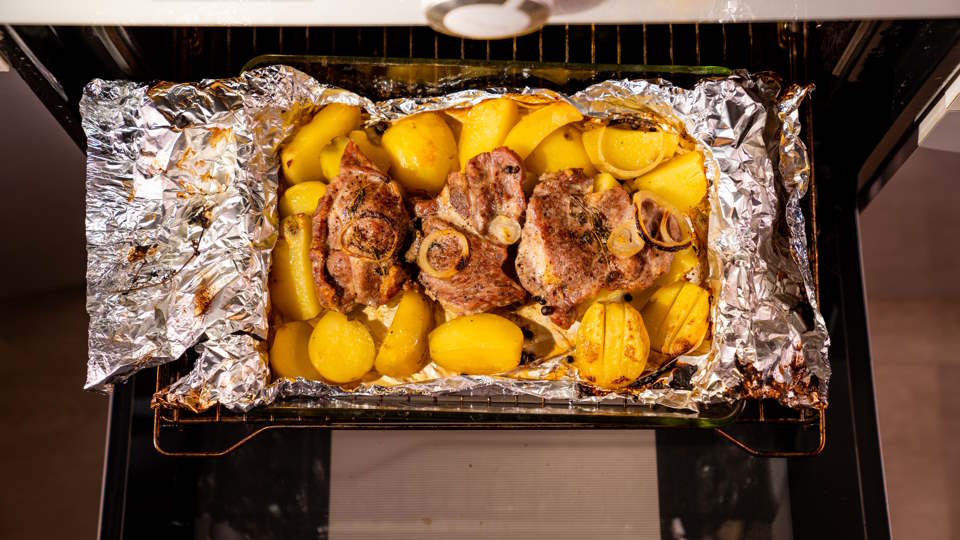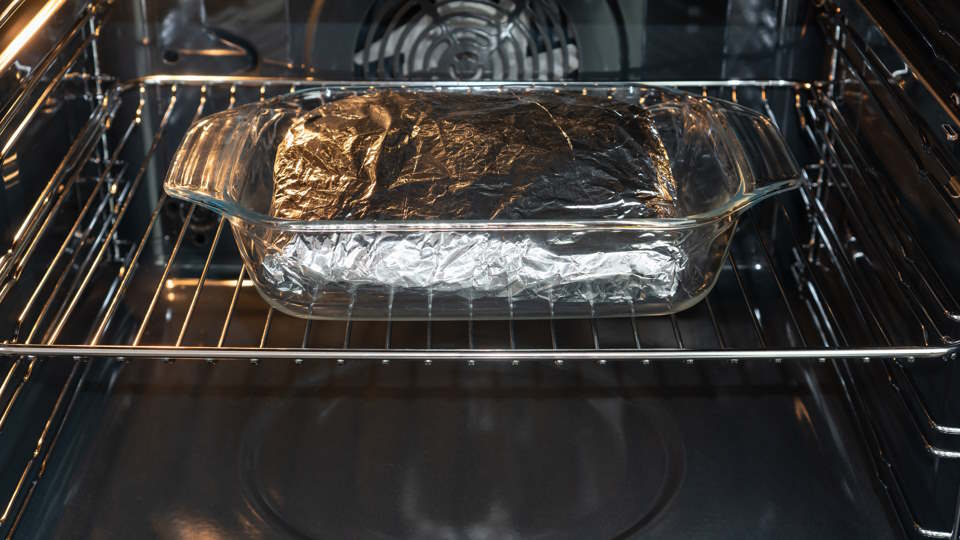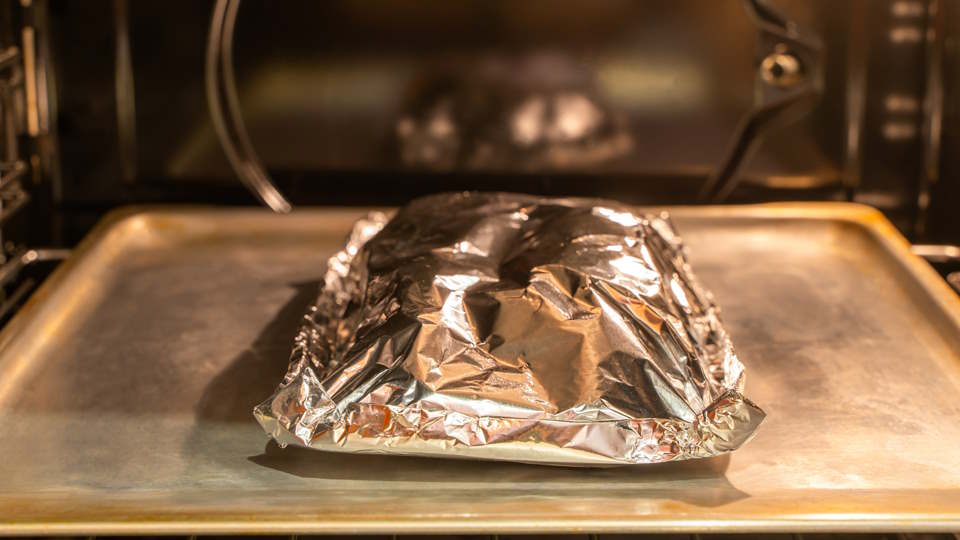Can You Fry in Aluminum Foil Pans?
Introduction
As one of the world’s most abundant elements and raw materials, aluminum is very flexible, robust, useful, and light. For this reason, it is a very functional item to cook for many people, especially campers and workers. In addition, aluminum is becoming a more cost-effective option alongside many other kitchen equipment. As a result, it has gained popularity for use in the production of many kitchen equipment.
On the other hand, when we talk about frying, we all know that this type of cooking technique is used quite often in the kitchen. Well, can you fry in aluminum foil pans?
As an answer to this question, certain explanations were made, and the characteristics and certain properties of aluminum pans were discussed and examined. Similarly, it is also stated what methods can be followed to prevent the ingredients from sticking to the aluminum pan or what should be considered when aluminum pans are involved in the frying process.
Can You Fry in An Aluminum Foil Pan?

Aluminum pans are very convenient, useful, practical, and pocket-friendly as kitchen equipment. At this point, they are very advantageous, and they can keep their usage area-wide. Supportively, aluminum foil, which is one of the pan types that conducts heat best, is a type of pan suitable for frying technique under sufficient and suitable temperature conditions. So, we can indeed, say yes to the question, “Can you fry in aluminum foil pans?”. You can fry in an aluminum foil pan.
If we’re talking about the frying, depending on the type of oil—we can assume that it is based on a common frying oil type—it should ideally be between 320°F and 374°F. In addition, the ideal pan temperature for frying is 350°F to 375°F.
With being a conductor of heat as one of their primary features, aluminum foil pans have the function of being used as a frying pan. Moreover, you can ensure that the food is cooked or fried properly, thanks to the aluminum that allows the pan surface to heat up evenly. It should also be noted that precautionary and preferably deep aluminum pans are more suitable for frying.
On the other hand, to alleviate the common fear that aluminum foil pans will melt during the frying process, remember that aluminum pans are completely safe and do not melt easily if such an extreme temperature of 1220°F is not exceeded.
Another important point to consider when frying in aluminum pans is that this type of pan is highly reactive to ingredients with high-acidic content, such as tomatoes, vinegar, or citrus juice. You should consider frying foods that are compatible with your pan in order not to encounter major problems such as oil spilling and exploding during frying.
Can You Deep-fry Food in Aluminum Foil?
To make the subject more understandable, let me note that the ingredients are fried in an oil equal to half the oil used in deep-frying in the frying process. In the deep-fry, the ingredients are completely immersed in a layer of deep-fried oil. In other words, the amount of oil difference between the two processes is very important.
For this reason, deep-frying is a technique that requires a much higher temperature, and therefore the pan is expected to be compatible with this temperature. The ideal optimum temperature for oil for deep-frying is 392°F; on the other hand, the oil will burn when 600°F is exceeded.
You can use a thermometer to find out this degree, or you can try the fairly basic and common method. According to this method, you can put a small piece of bread in the oil after a certain time and observe it. If the bread turns golden in 1 minute, the temperature of the oil is approximately 347°F; if it turns golden in 40 seconds, the temperature of the oil is approximately 374°F; if it turns golden in 20 seconds, then it is 383°F.
It may be wondered whether the aluminum pans will also be durable for the process and whether they can handle this process. Yes, aluminum foil pans are suitable for deep-frying and do not melt unless they exceed an extreme temperature of 1220°F, which is stated above. Moreover, aluminum pans are more resistant to damage such as cracking, melting, charring, or burning compared to steel pans because of the heat. Plus, they are built in the form of flameproof, so they do not catch fire easily.
However, since it is reactive against acidic ingredients, the use of aluminum foil pans in frying is not preferred or recommended. In addition, aluminum foil pans exposed to long-term heat are intended to discolor and stain faster than other types of pans. Besides, they are not dishwasher safe, and they require special effort. Therefore, they get rusty easily if the necessary care is not applied.
How Do You Fry Aluminum Pan without Sticking?

It will be enough to know certain very basic things to prevent the food from sticking in aluminum foil pans, which is perhaps one of the most troublesome and frustrating situations that can be encountered during cooking. Whether the pan reaches the appropriate temperature in terms of how to fry the food without sticking to the surface of the aluminum pan, which we have mentioned that it transmits heat well, is an essential point to consider.
To understand the pan’s heat, put it on your stove at medium heat setting and wait for it to heat up for a while. Then pour a tablespoon of water into the pan to see if it has reached sufficient heat. If the water drops suddenly start simmering, it means that your pan has reached the appropriate temperature.
Thanks to the pan being used at the appropriate temperature, your food will not stick to the pan during the frying process. Alternatively, you can use butter or olive oil. For this method, you can apply them on the surface of the pan before frying so that the surface remains moist. But be careful not to burn the oils.
Another method that can be applied together with these is mainly suitable for aluminum pans. In this method, all you have to do is add some sunflower oil and a small amount of salt to the pan before frying. Make sure the salt is evenly spread all over.
With such methods, food can be prevented from sticking while frying in an aluminum pan, and with some care, the problem of sticking in the pans can be eliminated.
The most important of the aforementioned care is that the surface of the pan is in a healthy condition. That is because the composition of the scratched and damaged pan surface becomes thinner, the layer that prevents the food from sticking will be removed, and the food will eventually stick. If attention is paid to such points, you can fry without sticking in many pans, including aluminum foil pans.
As a bonus tip, take advantage of non-stick cooking sprays. You can prevent food from sticking to the surface of the pan thanks to the cooking spray you can apply to the pan before cooking or frying.
Does Oil Go through Aluminum Foil?

In answer to this question, we can make clearer and more specific conclusions by explaining the durability of aluminum in response to other types of pans. As a much lighter material than iron and steel, aluminum has one-third the density of steel and iron. Accordingly, unlike steel and iron pans, which corrode and rust more quickly under normal weather conditions, aluminum foil pans are highly resistant to corrosion and do not rust easily.
On the other hand, iron and steel materials are not easily produced in castings such as pans because they are hard and breakable. On the contrary, with the flexible and soft texture and structure of aluminum, every casting method can be applied and easily shaped.
Aluminum has such advantages, however, it shows less resistance to heat at melting point compared to iron and steel pans in terms of durability. So much so that while the melting degree can be shown as 1220°F, this figure rises to between 2012°F-2192°F for iron and 2732°F-2912°F for steel.
As aluminum is very sensitive to impact and temperature, it is prone to liquid loss or leakage when it is hit or some of it melts. On the other hand, in its pure and very solid form, aluminum is impermeable to oil or any other liquid. In other words, no, oil doesn’t go through aluminum foil. It is even used in important points such as the storage of solar energy systems because aluminum does not corrode easily and does not rust eventually.
Do You Need to Grease an Aluminum Foil Pan?
Due to its structure, aluminum is a type of pan that is more inclined to make the food stick, unlike a non-sticky or cast-iron pan. For this reason, it is necessary to grease the aluminum foil pan, besides, the amount of oil varies depending on the dish and the technique used.
As mentioned above, aluminum pans have a much thinner and more flexible structure than iron and steel. Moreover, it allows the food to be cooked quickly, as it passes the heat excessively and heats up immediately.
Because of all these, it will be more effective and healthier to grease the pan with a certain amount of oil before cooking. The oil to be used for the process should be olive oil so that the greasing process doesn’t end with burning.
For this reason, you can perform the greasing process before heating the pan and then slowly heat the pan to the desired degree. With this method, the surface of your aluminum pan will remain moist, and food will be less likely to stick to the pan.
Do I Need Non-stick Spray on Aluminum Foil?
Non-stick cooking sprays, which have increased in popularity and preference, can offer advantages by providing very useful and practical cooking in the kitchen. So much so that even versions with zero calories of non-stick cooking sprays, which have wide varieties from coconut oil to olive oil, can be easily found on the market.
As one of their advantages, non-stick cooking sprays show minimalist functionality in terms of oil rate. On the other hand, it prevents your food from being greasy and provides benefits both in terms of health and taste quality. Similarly, it has been observed that non-stick cooking sprays, which provide ease of cleaning by preventing ingredients from sticking to the pan, have positive points in terms of health.
Although it does not need to be used as a requirement or a condition, its use, preferably in aluminum pans, provides much more effective and healthy cooking. Namely, you can provide the oil required for the greasing process mentioned above with non-stick cooking sprays, and you can ensure that the surface of your aluminum pan is less sticky through this type of low-calorie oil.
All in all, using non-stick spray on your aluminum foil pan is totally up to you, considering its benefits.
Conclusion

To wrap things up, aluminum foil pans are flexible, light, and quickly heated pans due to their structure. Since they are an abundant raw material in the world, they can operate quite affordably as kitchen equipment. For this reason, many prefer it.
On the other hand, if the subject comes to the frying process with an aluminum foil pan as a more specific point, and to answer the question “Can you fry in aluminum foil pans?” it should be noted that the thought that the pan will melt during the frying process as a misconception that many have acquired is wrong.
Note that there is a risk that aluminum foil pans may melt at a temperature above 1220°F, as the degree of frying should average between 320°F-374°F so that the oil does not burn. Also, since aluminum pans are liquid-proof, oil does not go through them.

